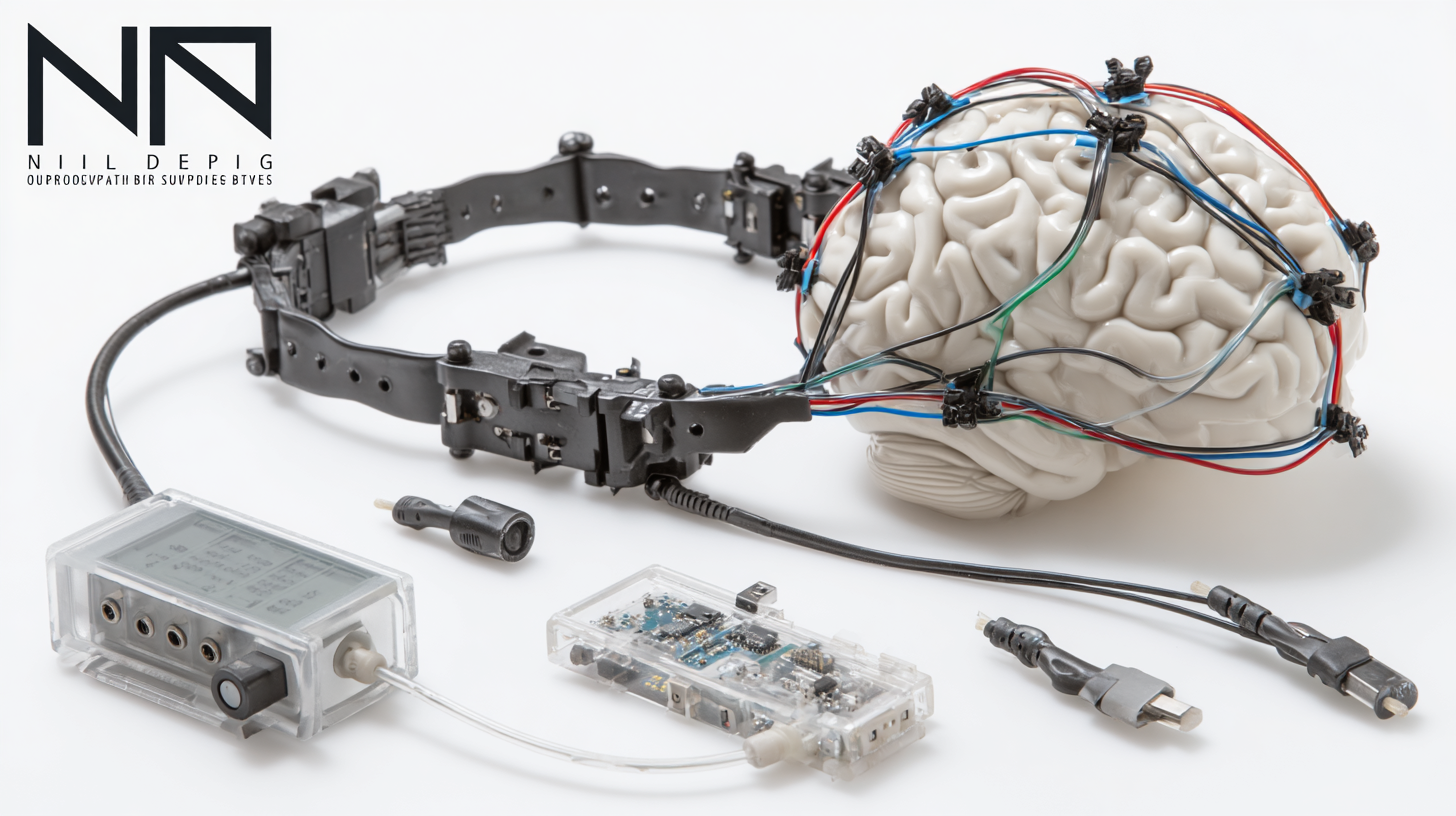In the rapidly evolving healthcare landscape, the quest for innovative solutions to address neurological disorders has taken center stage, making the search for the right supplier of neurological disorders devices more crucial than ever. As we approach 2025, technological advancements are set to redefine how these medical devices are developed, manufactured, and distributed. With the rise of artificial intelligence, telemedicine, and personalized treatment approaches, healthcare providers must navigate a complex marketplace to find suppliers who not only deliver high-quality products but also align with the latest trends and regulatory standards. This blog aims to simplify the process of selecting the ideal supplier for neurological disorders devices, providing insights into essential factors to consider and emerging technologies that are shaping the future of neurological care. By understanding the nuances of this dynamic field, medical professionals can ensure they are equipped with the best devices to improve patient outcomes and enhance their practice's efficiency.

When navigating the competitive landscape of neurological device suppliers, identifying key features is crucial for making informed procurement decisions. According to a recent report from Grand View Research, the global neurological devices market is projected to reach USD 9.4 billion by 2025, driven by an increasing prevalence of neurological disorders and advancements in technology. Suppliers offering innovative and high-quality devices that meet regulatory standards are essential for healthcare providers looking to enhance patient outcomes.

In this context, it's vital to assess a supplier's commitment to research and development. A supplier that invests at least 10% of its revenue into R&D not only demonstrates industry leadership but also reflects a dedication to improving device efficacy and safety. Furthermore, recent data from MarketsandMarkets indicates that the demand for minimally invasive neurostimulation devices has surged, underscoring the necessity for suppliers to offer cutting-edge technology. Evaluating potential suppliers based on their track record of innovation, product reliability, and compliance with international regulations will help ensure that healthcare professionals are equipped with the best tools for managing neurological disorders.
When sourcing devices for neurological disorders, understanding regulatory standards is crucial for ensuring both safety and efficacy. Regulatory bodies like the FDA in the U.S. and the EMA in Europe set stringent guidelines that manufacturers and suppliers must meet. These standards not only cover device design and production but also extend to post-market surveillance, necessitating robust quality management systems. Navigating this complex regulatory landscape is essential for finding a reliable supplier who can deliver compliant devices.
Tip: Always inquire about a supplier’s compliance history and whether they possess the necessary certifications. This will help you gauge their reliability and commitment to quality.
Moreover, effective communication with suppliers about their adherence to regulations can aid in building a trustworthy partnership. Suppliers should provide clear documentation that outlines their processes for managing compliance and adhering to the latest standards.
Tip: Request regular updates and documentation on regulatory changes that might affect your products. This proactive approach will keep you informed and ready to adapt as needed.
When searching for the right supplier for neurological disorder devices, evaluating their expertise is pivotal. According to a Grand View Research report, the global neurological devices market is projected to reach USD 9.82 billion by 2025, growing at a CAGR of 8.5%. This remarkable growth underscores the importance of collaborating with suppliers who have a proven track record in developing cutting-edge technologies that meet the stringent demands of the healthcare industry.

Evaluating a supplier's experience involves an analysis of their past projects, the certifications they hold, and customer testimonials. A study published in the Journal of Medical Devices highlighted that companies with over 10 years of experience in neurological device development showed a 30% higher rate of regulatory approval compared to their less experienced counterparts. Assessing innovation capabilities and adherence to compliance and safety standards is essential to ensure that the devices are reliable and effective for patient care. Working with established suppliers can significantly impact clinical outcomes and enhance the overall quality of care in neurology.
When selecting a supplier for neurological disorders devices, one of the most critical aspects to consider is product quality assurance. Key metrics for evaluation serve as a framework for ensuring that the devices meet industry standards and deliver effective results for those who rely on them. Parameters such as compliance with regulatory requirements, reliability testing outcomes, and the supplier’s history of successful product performance can significantly influence procurement decisions. A thorough assessment of these metrics can help identify suppliers who prioritize quality and safety in their manufacturing processes.
In addition to these metrics, organizations should look for suppliers who demonstrate a commitment to continuous improvement. Frequent audits, responsive customer feedback systems, and proactive product innovation are indicators that a supplier values quality assurance as an ongoing process rather than a one-time effort. Engaging with suppliers that prioritize these elements not only fosters a robust partnership but also ensures that the resulting devices will provide the highest level of care for patients dealing with neurological conditions, making the selection process essential for both healthcare providers and their patients.
| Supplier Name | Product Quality Assurance Metrics | Delivery Time (Days) | Customer Satisfaction Rating (1-5) | Price (USD) |
|---|---|---|---|---|
| Supplier A | ISO 13485 Certified, 98% Pass Rate | 15 | 4.5 | $500 |
| Supplier B | CE Marked, 95% Pass Rate | 10 | 4.7 | $600 |
| Supplier C | FDA Approved, 97% Pass Rate | 20 | 4.2 | $550 |
| Supplier D | ISO 9001 Certified, 96% Pass Rate | 12 | 4.6 | $520 |
| Supplier E | CE Marked, 94% Pass Rate | 8 | 4.3 | $590 |
Choosing the right supplier for neurological disorders devices is crucial for medical professionals and caregivers seeking effective solutions. To simplify this process, utilizing a comprehensive checklist serves as an invaluable tool. Such a checklist should include critical factors such as the supplier's expertise in neurological devices, adherence to regulatory standards, and the quality of their products. By evaluating these key aspects, users can ensure they are partnering with a reliable supplier that prioritizes safety and efficacy.
Additionally, it is important to assess the supplier’s customer support and service capabilities. A robust support system can significantly influence the overall user experience, from installation and training to ongoing maintenance and troubleshooting. Engaging with suppliers who provide extensive resources, such as educational materials and responsive customer service, can enhance the utilization of these devices. Ultimately, by following a thorough checklist, stakeholders can confidently navigate the complexities of finding the right neurological device supplier, ensuring the best outcomes for patients and caregivers alike.
*The content on this website is for general informational purposes only and should not be taken as medical advice. Please contact your physician or therapist to learn what therapy solution is suitable for your specific needs. Not all products, features, or indications shown are approved in all countries.